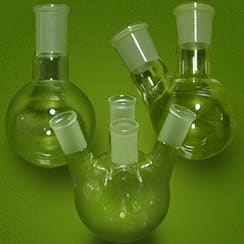
Pasteur pipette
Pasteur pipette Named after Louis Pasteur, Pasteur pipettes are a common lab-ware used to transfer small volumes of liquid in Biology, Chemistry, hematology and forensic laboratories. The technique requires pressing and releasing of the bulb to withdraw liquid. The markings on the pipette can be used for measurement. For pipettes made of glass, a rubber bulb (of 2 mL capacity) is generally used. Pasteur pipette comes in various size and diameter and can be ordered in packs from various manufacturer or suppliers. They can be reused but will be non-sterile and are generally disposed of after use. They can also be sealed and refrigerated. With glass Pasteur, the risk of breakage at the tip is a concern. Characteristics • Non-autoclavable • Disposable • Cheap and easy to handle • Made of low-density polyethylene • Cannot be used above 70 degrees Celsius • Unbreakable and non-toxic • Translucent • Available in various sizeNo Products


